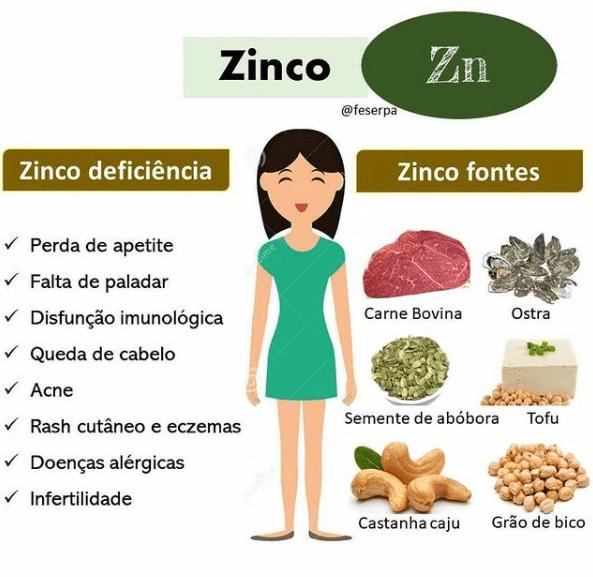
The excess of zinc occurs when the regulatory mechanisms of its absorption malfunction, and causes diarrhea, nausea, dizziness and sleepiness. Let's find out better how to cure it.
> 1. Symptoms of excess zinc
> 2. The cause
> 3. Excess of zinc and power supply
Symptoms of excess zinc
Lo zinc it is an important metal for the body: it participates in the digestion of carbohydrates and in the metabolism of phosphorus, reduces infections and decreases the absorption of toxic metals, favoring that of vitamins.
The human body contains about 2 grams of zinc, for a daily requirement of about 4 milligrams in children, 20 in adults and 25-30 in pregnant women. While a zinc deficiency causes severe disturbances in every living organism, relatively less serious disturbances cause an excess thereof.
A hair mineralogram is useful for determining the amount of zinc present in the body, as well as blood and urine tests. Zinc is relatively mildly toxic, although prolonged high dosages cause side effects.
Symptoms of zinc excess included: diarrhea, nausea, dizziness, loss of muscle coordination, sleepiness, gastrointestinal disturbances, apathy, kidney failure and anemia. THE
n some cases, the prolonged administration of high doses of zinc has caused a reduction in the level of HDL cholesterol, the good one. Massive zinc intakes can cause a copper deficiency, which instead causes an increase in LDL cholesterol, the bad one, leading to hypercholesterolemia.
The causes of excess zinc
If the mechanisms for regulating the absorption of zinc work normally, there is hardly a risk of an excessive intake of zinc, an element which, however, has little toxicity.
However, if you take high dosages of zinc-based supplements, it is also important to supplement with vitamin A, whose absorption can be hampered by zinc itself.
Cases of excessive zinc intake can be caused by contamination of food and drinks by the containers used for storage. These containers can in fact release zinc once they are left open, especially if the foods they contain are highly acidic.
Even the use of sunscreen would risk causing excess zinc in the blood: zinc nano-particles penetrate the blood through the pores of the skin and can create an imbalance of this metal.
Excess zinc and nutrition
Diets that provide a lot of zinc to the body are the refined ones, which do not contain whole-fiber cereals, have low amounts of phytic acid and provide proteins from non-vegetable sources, such as meat and fish.
The absorption of zinc from food is approximately 20-30% of that introduced, and is decreased by the presence of phytates, contained in cereals, and an excess of calcium.
- foods that are richer in it, therefore to be avoided in case of excess zinc, are liver, beef, oysters, shellfish, prawns, brewer's yeast, cheese, pumpkin seeds and millet.
Sometimes it happens that strictly vegetarian or vegan diets can cause a deficiency of the element, while the hyperproteins an excess of zinc.
What Are Natural Zinc Supplements?


























